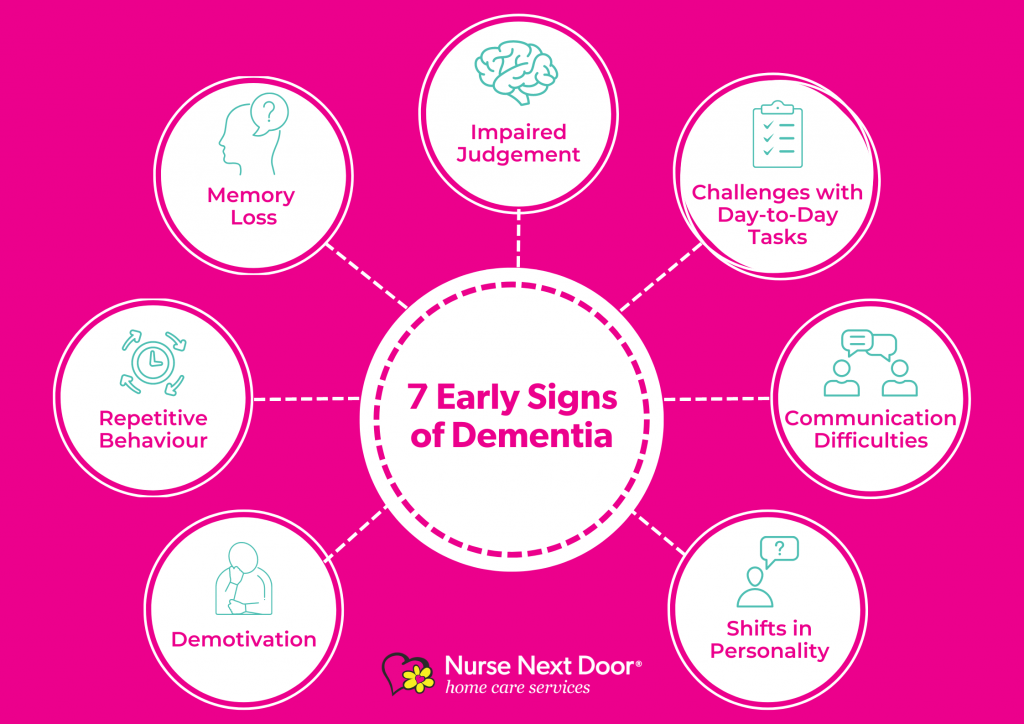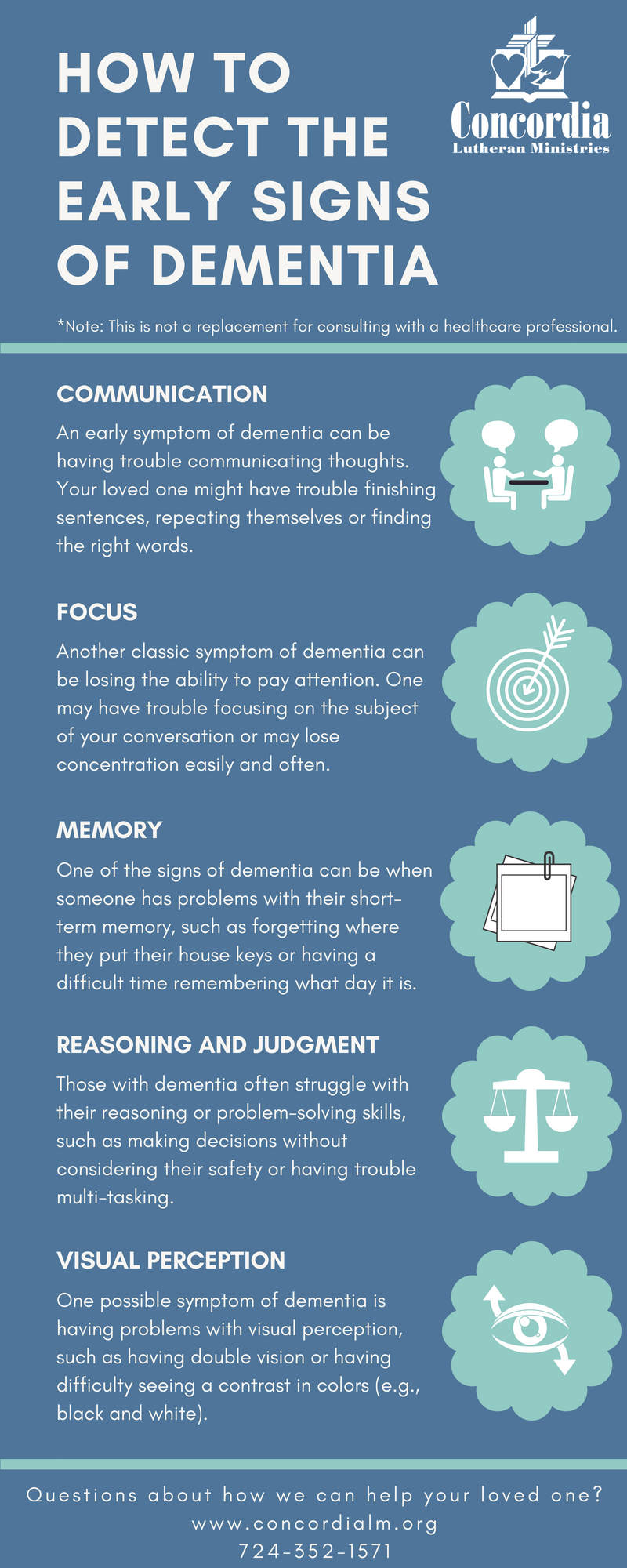Key Differences Between Vascular Dementia and Alzheimer's Disease
Key Differences Between Vascular Dementia and Alzheimer's Disease
Blog Article
Comprehending the Effect of Mental Deterioration on Every Day Life and Caregiving
Dementia influences day-to-day life in profound ways, influencing not just those identified but likewise their caretakers. As cognitive decrease advances, you might see changes in interaction and routine that obstacle both celebrations.
The Stages of Mental Deterioration and Their Impacts on Daily Life
As you browse the journey of mental deterioration, comprehending its phases can considerably influence exactly how you handle day-to-day live. Dementia generally proceeds via three major stages: early, center, and late. In the beginning, you might see periodic memory gaps or difficulty finding the right words. This can lead to irritation, however acknowledging these indicators early aids you adjust your regular and look for assistance.
During the center phase, you'll experience much more obvious cognitive decrease. Daily tasks might end up being difficult, and preserving your freedom might call for changes. Utilizing reminders and simplifying your environment can help.
In the late phase, people often require substantial aid with day-to-day activities. Preparation for care ends up being crucial, focusing on comfort and quality of life. By understanding these stages, you're better outfitted to respond proactively, ensuring you or your liked one can browse the challenges with self-respect and poise.

Adjustments in Communication and Social Communication
Just how do changes in communication influence your daily communications as dementia advances? As mental deterioration developments, you could notice that basic discussions become challenging. Words may leave you, or you may struggle to locate the appropriate expressions. This can cause frustration for both you and your enjoyed ones. Nonverbal signs, like gestures or facial expressions, become increasingly essential.
You may find it easier to attach with these means rather of depending entirely on spoken language. Paying attention skills can additionally alter; you might locate it more challenging to remember or adhere to discussions what was just claimed (Fall Risk). This can bring about misconceptions or feelings of isolation
Encouraging patience and developing a helpful environment can aid. Engaging in activities that cultivate link, like songs or art, can improve social communications. Remember, keeping connections is still feasible; it's practically adjusting to new ways of interacting.
Influence On Daily Routines and Activities
While navigating daily regimens, you'll likely see that jobs you when completed easily become a lot more challenging as mental deterioration progresses. Basic tasks like cooking, clothing, or perhaps showering may require more time and initiative. You may locate on your own forgetting steps in acquainted regimens or struggling to recall where you put things. This can lead to frustration not just for you, however likewise for those around you.
Adjusting your setting can assist; for circumstances, classifying products or using lists can simplify tasks. Involving in recurring, organized tasks can additionally supply convenience and a sense of success. Bear in mind, it's all right to ask for help.
Behavior and psychological Obstacles
Steering through day-to-day regimens can bring around not simply sensible difficulties, yet additionally psychological and behavioral ones. You may see modifications in mood, such as raised anxiousness or aggravation, which can originate from complication or difficulty in finishing tasks. As you browse these minutes, it is crucial to acknowledge that your loved one might express their feelings via behaviors like anxiety or withdrawal.
These psychological reactions can be uncertain and may emerge without warning, leaving you both sensation bewildered. You could find that acquainted settings or routines can help in reducing anxiety, however preserving persistence becomes significant. It is necessary to verify their sensations, also if you do not fully comprehend them.
The Function of Caregivers in Sustaining Individuals With Dementia
As a caregiver, you play a vital duty in providing emotional support for individuals with dementia. Developing everyday treatment regimens can create a sense of stability and convenience, helping to alleviate their anxiety. By understanding their requirements and making use of effective strategies, you can considerably enhance their lifestyle.
Emotional Support Methods
When caring for somebody with dementia, comprehending the psychological landscape is essential for supplying reliable assistance. You'll often locate that perseverance and empathy go a lengthy way. Confirm their feelings; if they express complication or disappointment, recognize it without disregarding their emotions. Easy motions, like holding their hand or keeping eye call, can develop a feeling of protection. Attempt to participate in tasks that they appreciate, as this can trigger pleasure and link. Remember to connect clearly and slowly, using a tranquil tone. Motivate expression with music or art, which can work as an effective outlet. Ultimately, do not fail to remember to take care of your own psychological requirements; seeking assistance on your own can improve your ability to look after them.
Daily Treatment Routines
Establishing day-to-day care regimens is vital for offering stability and comfort to people with dementia, as these regimens can aid decrease complication and anxiety. You can begin by outlining a consistent routine for meals, activities, more info here and rest. This predictability aids your loved one feel a lot more secure and engaged.
Integrate acquainted jobs, like folding laundry or watering plants, which can evoke favorable memories and promote a feeling of success. Usage visual hints, such as lists or calendars, to assist them via the day.
Be flexible, though; adapt regimens as required based on their mood or power degrees. Fall Risk. Keep in mind, your perseverance and understanding are important in steering their altering demands, ensuring they really feel sustained and valued throughout their every day life
Developing a Safe and Comfy Living Setting
Producing a secure and comfy living environment is important for people with mental deterioration. You'll intend to make home security modifications that minimize dangers and guarantee knowledge to offer a feeling of comfort. By focusing on these elements, you can assist develop a space that supports both security and wellness.
Home Security Alterations
As you navigate the difficulties of mental deterioration, making home safety adjustments can significantly enhance comfort and safety and security. Beginning by eliminating tripping threats like rugs and mess, assuring walkways are clear. Install grab bars in shower rooms and non-slip floor coverings in the shower to stop drops. Think about making use of brighter illumination and evening lights to enhance presence, specifically throughout nighttime. Tag crucial locations, such as the washroom and cooking area, with clear indications to assist with orientation. Safeguard any kind of sharp items or harmful substances unreachable. Furthermore, assess your home's locks and alarm systems to validate they're easy to use and supply peace of mind. These adjustments not only promote safety and security but additionally urge freedom, permitting your liked one to really feel more secure in their environment.
Comfort and Knowledge
After guaranteeing a safe environment with necessary modifications, cultivating convenience and familiarity is vital for individuals with mental deterioration. Begin by personalizing their area. Use familiar shades, decorations, and pictures that evoke delighted memories. A preferred blanket or chair can supply a complacency. Keep a consistent routine to aid them feel based and decrease stress and anxiety. Simple, familiar meals can additionally develop a comforting atmosphere. Maintain pathways clutter-free and clear to avoid complication. Include soft illumination, as intense lights can be disorienting. Consider including relaxing aromas, like lavender, to advertise leisure. Participating in familiar activities, such as listening to songs or gardening, can boost their sense of belonging, making their living setting a real haven.
Approaches for Reliable Caregiving and Support
While steering the challenges of dementia care can feel overwhelming, implementing reliable methods can considerably improve both the caretaker's and the individual's daily experience. Begin by developing a regimen; predictability helps in reducing anxiety for both you and your loved one. Usage clear, basic interaction-- short sentences and direct inquiries can prevent complication.

Don't forget to deal with yourself; schedule breaks and get in touch with support system. Sharing experiences with others in comparable scenarios can give valuable insights and psychological alleviation.
Finally, stay client and versatile. Mental deterioration can bring unpredictable changes, so adapting your approach is crucial. By using these strategies, you can promote an extra favorable environment that benefits both you and your enjoyed one.
Regularly Asked Inquiries

What Are the Various Types of Dementia?
You'll locate several kinds of dementia, including Alzheimer's, vascular mental deterioration, Lewy body mental deterioration, and frontotemporal mental deterioration. Each kind affects memory and cognitive function in a different way, so understanding the distinctions is straight from the source vital for appropriate diagnosis and care.
Exactly How Can I Aid A Person With Early-Stage Mental Deterioration?
You can aid a person with early-stage mental deterioration by being patient, offering support, and urging them to take part in tasks they take pleasure in. Keeping regimens regular and keeping open communication can likewise make a substantial difference in their day-to-day live.
Are There Financial Resources Available for Mental Deterioration Care?
Yes, there are economic sources readily available for mental deterioration treatment. You can check out entitlement program programs, not-for-profit companies, and insurance policy choices. It's also important to seek advice from local agencies for certain sources customized to your scenario.
What Legal Factors To Consider Should Caregivers Understand?
As a caretaker, you must take into check my blog consideration power of lawyer, medical care proxies, and guardianship laws. It's vital to recognize the legal civil liberties and responsibilities you hold, guaranteeing your loved one gets suitable treatment and security.
How Can I Manage Caregiver Stress And Anxiety?
You can manage caretaker tension by focusing on self-care, seeking assistance from groups or close friends, establishing realistic assumptions, taking breaks, and practicing leisure techniques. Bear in mind, your health matters simply as long as the person you're looking after.
Comprehending the Effect of Dementia on Daily Life and Caregiving.
As you browse the journey of dementia, recognizing its stages can significantly affect how you take care of daily life.While steering everyday regimens, you'll likely notice that tasks you as soon as completed effortlessly come to be a lot more tough as mental deterioration advances.Establishing everyday treatment routines is crucial for offering security and convenience to people with dementia, as these routines can assist reduce confusion and anxiousness.While maneuvering the difficulties of mental deterioration treatment can feel frustrating, implementing efficient methods can greatly enhance both the caretaker's and the patient's everyday experience.
Report this page